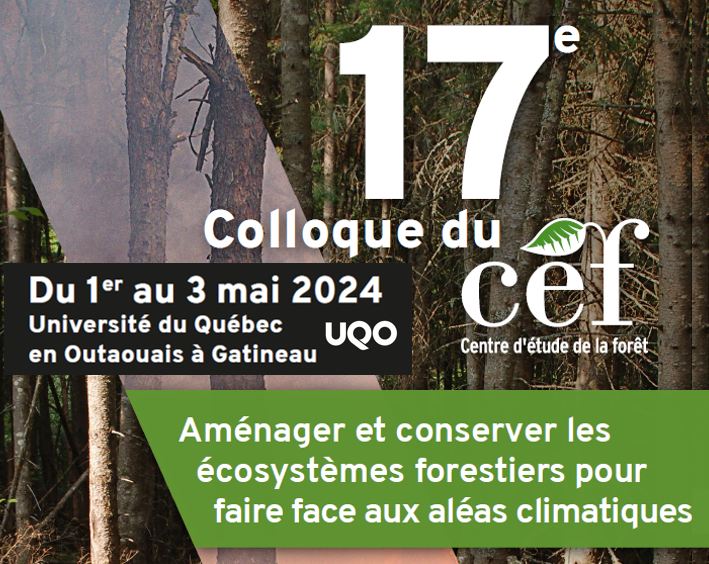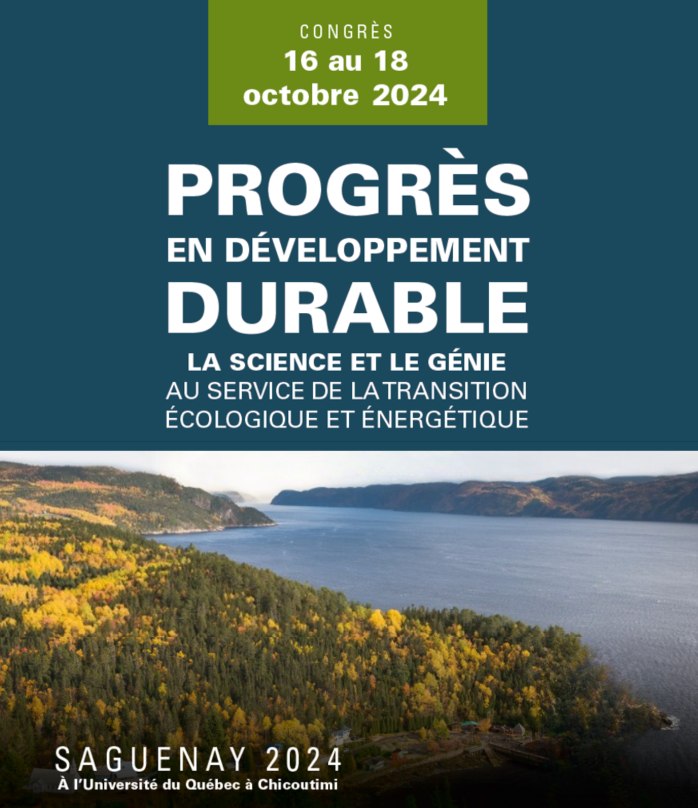Practical Introduction to ArcGIS
Syllabus
Instructor: Pierre Racine
Note that the french version of this page ![]() is more complete and might be more up-to-date.
is more complete and might be more up-to-date.
Objectives
The objective of this course is to teach, in five days, the fundamentals of ArcGIS 9.x. Following this course, the student will be able to evaluate the utility of geographical information systems in scientific research, to integrate data coming from different sources into ArcGIS, to correctly map them and to process them in order to produce derived data. We will also look at some elements of spatial statistics and geostatistics.
Content
The equivalent of a day and a half of classical lecture will introduce students to the basic principles of geographical information systems with focus on ArcGIS' distinctive features. The rest of the time will be devoted to practical exercises using ArcGIS. These exercises will allow students to integrate principles introduced during the lectures.
Lectures
- Introduction to Geographical Information Systems
Model building, importance of geographical information, advantages of GIS, examples of application (civil engineering, epidemiology, forestry), basic principles (data acquisition and processing, vector vs. raster, 2d vs. 3d, layers of information). - Data Formats
Tables vs. databases (relational joins), vector information (point, line, surface, formats (coverage, shapefile, geodatabase), topology)), raster information (formats, georeferencing), TIN, metadata, data precision. - Projections and Mapping (ArcMap)
The projection problem, projection types, map types, representation and symbolization, labels, layout, problems related to representation. - Data Management, Process and Editing (ArcCatalog et ArcMap Editor)
Data management and conversion, importation of GPS data, data editing, other conversion software. - Spatial Analysis, Spatial Statistics and Geostatistics (ArcToolbox and Spatial Analyst)
Geoprocessing, vector analysis (transformations, selection, buffer, operations, spatial joins) and raster analysis (transformation, Grid Calculator, global, zonal, focal functions), Model Builder, spatial statistics, autocorrelation, kriging, problems related to spatial analysis (MAUP). - A Brief Look at Some ArcGIS Extensions
3D Analyst, Network Analyst, Hawth’s tools, XTools, ET GeoWizards. - Other Resources
Documentation, data, websites, forums.
Practical exercises
- Data Integration and Mapping
Creation of a cartographic file containing many useful data types (administrative limits, roads, population, forest cover, elevation, economic statistics, GPS data, pictures (georeferencing) and derived data (data preparation and conversion, raster to vector conversion, projections, vector data editing)). Layer representation and symbolization. - Choropleth Mapping
Creation of a choropleth map using data integrated in the previous exercise. - Selections, Measurements, Derivations and Spatial Analyses
file merging, selection, clipping, buffer, dissolve, intersect, area computation. - Edition and Spatial joint
Symbologies export & import, table edition, vector edition, distance computation, spatial joint and reprojections. - Topological Problems Handling
Check of the topological characteristics of a layer and fix by editing, snapping. - Creation of a 3D Model of the Montmorency Forest
Raster edition, TIN creation, data integration and navigation in a 3D model.
Each exercise will be introduced and then completed by the students.
Resources
Books
- Law, M., Collins, A. (2015) Getting to Know ArcGIS
 . ESRI Press, 768 pages.
. ESRI Press, 768 pages.
- Gorr, W.L. and Kurland K.S. (2013) GIS Tutorial 1: Basic Workbook, 10.1 Edition
 . ESRI Press, 440 pages.
. ESRI Press, 440 pages.
- Price, M.H. (2015) Mastering Arcgis
 . Mcgraw-Hill College, 624 pages.
. Mcgraw-Hill College, 624 pages.
- Kennedy, M. (2013) Introducing Geographic Information Systems with ArcGIS: A Workbook Approach to Learning GIS
 . Wiley, 624 pages.
. Wiley, 624 pages.
- Allen, D.W. (2010) GIS Tutorial 2: Spatial Analysis Workbook
 . ESRI Press, 450 pages.
. ESRI Press, 450 pages.
- Allen, D.W. (2010) GIS Tutorial 3: Advanced Workbook
 . ESRI Press, 412 pages.
. ESRI Press, 412 pages.
- Allen, D.W. (2011) Getting to Know ArcGIS ModelBuilder
 . ESRI Press, 362 pages.
. ESRI Press, 362 pages.
- Zandbergen, P.A. (2013) Python Scripting for ArcGIS
 . ESRI Press, 454 pages.
. ESRI Press, 454 pages.
- Pimpler, E. (2013) Programming ArcGIS 10.1 with Python Cookbook
 . Packt Publishing, 304 pages.
. Packt Publishing, 304 pages.
- Jennings, N. (2011) A Python Primer for ArcGIS
 . CreateSpace Independent Publishing Platform, 462 pages.
. CreateSpace Independent Publishing Platform, 462 pages.
- ESRI (2012) ArcGIS 10.1 tutorials
 .
.
Theory on geographical information systems
- Bolstad, P. (2005) GIS Fundamentals: A First Text on Geographic Information Systems - Third Edition
 . Eider Press, 620 pages. (The Fourth Edition
. Eider Press, 620 pages. (The Fourth Edition  is now available.)
is now available.)
- Longley, P.A., Goodchild, M.F., Maguire, D.J., and Rhind, D.W. (2010) Geographical information systems and science - 3rd edition
 . Wiley, 560 pages.
. Wiley, 560 pages.
- DeMers, M.N. (2008) Fundamentals of Geographic Information Systems. 4th Edition
 . John Wiley & Sons, 443 pages.
. John Wiley & Sons, 443 pages.
- Longley, P.A. (Editor), Goodchild, M.F. (Editor), Maguire, D.J. (Editor) and Rhind, D.W. (Editor) (2005) Geographical Information Systems: Principles, Techniques, Management and Applications
 . Wiley, 404 pages.
. Wiley, 404 pages.
- Chang, K.T. (2011) Introduction to Geographic Information Systems with Data Set CD-ROM. 6th edition
 . McGraw-Hill, 418 pages.
. McGraw-Hill, 418 pages.
- Heywood, I., Cornelius, S. and Carver, S. (2012) An Introduction to Geographic Information Systems. 4th edition
 . Prentice Hall, 480 pages.
. Prentice Hall, 480 pages.
- Pornon, H. (2011.) SIG La dimension géographique du système d'information
 . Dunod, 271 pages.
. Dunod, 271 pages.
- Pucha-Cofrep, F., Fries, A., Cánovas-García, F., Oñate-Valdivieso, F., González-Jaramillo, V., Pucha-Cofrep, D. (2018) Fundamentals of GIS - Applications with ArcGIS
 . 79 pages.
. 79 pages.
Spatial Analysis, Spatial Statistics and Geostatistics
- Allen, D.W. (2010) GIS Tutorial 2: Spatial Analysis Workbook
 . ESRI Press, 450 pages.
. ESRI Press, 450 pages.
- de Smith, Michael J., Goodchild, Michael F., Longley, Paul A. (2012) Geospatial Analysis: A Comprehensive Guide
 . En ligne. Troubador Publishing Ltd, 4th edition.
. En ligne. Troubador Publishing Ltd, 4th edition.
- Mitchell, A. (1999) The ESRI Guide to GIS Analysis Volume 1: Geographic Patterns & Relationships
 . ESRI Press, 186 pages.
. ESRI Press, 186 pages.
- Mitchell, A. (2005) The ESRI Guide to GIS Analysis Volume 2: Spatial Measurements and Statistics
 . ESRI Press, 152 pages.
. ESRI Press, 152 pages.
- O'Sullivan, D. and Unwin, D.J. (2010) Geographic Information Analysis - 2nd Edition
 . Wiley, 432 pages.
. Wiley, 432 pages.
- Wong, David W.S. and Lee, Jay (2005) Statistical Analysis of Geographic Information with ArcView GIS And ArcGIS
 . Wiley, 464 pages.
. Wiley, 464 pages.
- Fotheringham, A.S., Brunsdon, C. and Charlton, M. (2000) Quantitative Geography: Perspectives on Spatial Data Analysis
 . Sage Publications, 272 pages.
. Sage Publications, 272 pages.
- Fotheringham, A.S., Brunsdon, C. and Charlton, M. (2002) Geographically Weighted Regression: The Analysis of Spatially Varying Relationships
 . Wiley, 320 pages.
. Wiley, 320 pages.
- Maguire, D.J. (Editor), Batty, M. (Editor) and Goodchild, M.F. (Editor) (2005) GIS, spatial analysis, and modeling
 . ESRI Press, 480 pages.
. ESRI Press, 480 pages.
- Diggle, P.J. (2013) Statistical Analysis of Spatial and Spatio-Temporal Point Patterns, Third Edition
 . Chapman and Hall/CRC, 300 pages.
. Chapman and Hall/CRC, 300 pages.
- Chun, Y., Griffith, D.A. (2013) Spatial Statistics and Geostatistics: Theory and Applications for Geographic Information Science and Technology
 . SAGE Publications Ltd, 200 pages.
. SAGE Publications Ltd, 200 pages.
- Fortin, M.J. and Dale, M.R.T. (2003) Spatial Analysis: A Guide for Ecologists
 . Cambridge University Press, 452 pages.
. Cambridge University Press, 452 pages.
- Legendre, P.and Legendre, L. (1998) Numerical ecology
 . Elsevier, 853 pages.
. Elsevier, 853 pages.
- Ford, A. (2009) Modeling the Environment, Second Edition
 . Island Press, 400 pages.
. Island Press, 400 pages.
spatially Explicit Dynamic Modelling
- Railsback, S.F., Grimm, V. (2011) Agent-Based and Individual-Based Modeling: A Practical Introduction
 . Princeton University Press, 352 pages.
. Princeton University Press, 352 pages.
- O'Sullivan, D., Perry, G.L.W. (2013) Spatial Simulation: Exploring Pattern and Process
 . Wiley-Blackwell, 336 pages.
. Wiley-Blackwell, 336 pages.
- Slocum, T.A. (2008) Thematic Cartography and Visualization - 3rd Edition
 . Prentice Hall, 576 pages.
. Prentice Hall, 576 pages.
- Dent, B. (2008) Cartography: Thematic Map Design
 . McGraw-Hill, 368 pages.
. McGraw-Hill, 368 pages.
- Brewer, C.A. (2005) Designing Better Maps: A Guide for GIS Users
 . Redlands, California: ESRI Press, 220 pages.
. Redlands, California: ESRI Press, 220 pages.
- Kraak, M.J. and Ormeling, F. (2010) Cartography: Visualization of Geospatial Data - 3rd Edition
 . The Guilford Press, 199 pages.
. The Guilford Press, 199 pages.
- Monmonier, M.S. (1996) How to lie with maps
 . University of Chicago Press, 207 pages.
. University of Chicago Press, 207 pages.
- Peters, A. and MacDonald, H. (2005) Unlocking the Census with GIS
 . ESRI Press, 328 pages.
. ESRI Press, 328 pages.
- Millington, A.C. (Editor), Walsh, S.J. (Editor), Osborne, P.E. (Editor) (2001) GIS and Remote Sensing Applications in Biogeography and Ecology
 . Springer, 344 pages.
. Springer, 344 pages.
- Price, M. (Editor) and Heywood, D.I. (Editor) (1994) Mountain Environments And Geographic Information Systems
 . CRC, 334 pages.
. CRC, 334 pages.
- Bettinger, P., Wing, M.G. (2008) Geographic Information Systems: Applications in Natural Resource Management
 Oxford University Press, 268 pages.
Oxford University Press, 268 pages.
- Jansen, M. (Editor), Judas, M. (Editor), Saborowski, J. (Editor) (2002) Spatial Modelling in Forest Ecology and Management
 . Springer, 225 pages.
. Springer, 225 pages.
- Köhl, M., Magnussen, S.S., Marchetti, M. (2006) Sampling Methods, Remote Sensing and GIS Multiresource Forest Inventory
 . Springer, 392 pages.
. Springer, 392 pages.
- Lang, L. (1998) Managing Natural Resources with GIS
 . ESRI Press, 118 pages.
. ESRI Press, 118 pages.
- McCloy, Keith R. (2005) Resource Management Information Systems: Remote Sensing, GIS and Modelling, Second Edition
 . CRC, 616 pages.
. CRC, 616 pages.
- Wulder, M. (Editor), Franklin, S.E. (Editor) (2006) Understanding Forest Disturbance and Spatial Pattern: Remote Sensing and GIS Approaches
 . CRC, 246 pages.
. CRC, 246 pages.
- Gurnell, A.M. (Editor), Montgomery, D.R. (Editor) (2000) Hydrological Applications of GIS
 . Wiley, 176 pages.
. Wiley, 176 pages.
- Lyon, J.G. (Editor) (2002) GIS for Watershed and Water Resource Management
 . CRC, 274 pages.
. CRC, 274 pages.
- Maidment, D. (Editor), Djokic, D. (Editor) (2000) Hydrologic and Hydraulic Modeling Support with Geographic Information Systems
 . ESRI Press, 232 pages.
. ESRI Press, 232 pages.
- Maidment, D. (2002) Arc Hydro: GIS for Water Resources
 . ESRI Press, 220 pages.
. ESRI Press, 220 pages.
- Brimicombe, A. (2003) GIS Environmental Modelling and Engineering
 . CRC, 288 pages.
. CRC, 288 pages.
- Campagna, M. (Editor) (2005) GIS for Sustainable Development
 . CRC, 560 pages.
. CRC, 560 pages.
- Convis, C.L. (Editor) (2001) Conservation Geography
 . ESRI Press, 250 pages.
. ESRI Press, 250 pages.
- Falconer, A. (Editor) and Foresman, J. (Editor) (2002) A System for Survival: GIS and Sustainable Development
 . ESRI Press, 122 pages.
. ESRI Press, 122 pages.
- Fox, J. (Editor), Rindfuss, R.R. (Editor), Walsh, S.J. (Editor) (2006) People and the Environment: Approaches for Linking Household and Community Surveys to Remote Sensing and GIS
 . Springer, 348 pages.
. Springer, 348 pages.
- Halls, P. (2001) Spatial Information and the Environment
 . CRC, 284 pages.
. CRC, 284 pages.
- Skidmore, A. (2002) Environmental Modelling with GIS and Remote Sensing
 . CRC, 268 pages.
. CRC, 268 pages.
GIS in Health and epidemiology
- Kurland, K.S. and Gorr, W.L. (2016) GIS Tutorial for Health: Fifth Edition
 . ESRI Press, 460 pages.
. ESRI Press, 460 pages.
- Cromley, E.K. and McLafferty, S.L. (2011) GIS and Public Health. Second Edition
 . The Guilford Press, 503 pages.
. The Guilford Press, 503 pages.
- Khormi, H.M.K. and Kumar, L. (2015) Modelling Interactions Between Vector-Borne Diseases and Environment Using GIS
 . CRC Press, 262 pages.
. CRC Press, 262 pages.
- Meade, M.S. and Emch, M. (2010) Medical Geography, Third Edition
 . The Guilford Press, 498 pages.
. The Guilford Press, 498 pages.
- Koch, T. (2005) Cartographies of Disease: Maps, Mapping, and Medicine
 . ESRI Press, 420 pages.
. ESRI Press, 420 pages.
- Alan, L. and Melnick, M.D. (2002) Introduction to Geographic Information Systems for Public Health
 . Aspen Publishers, 376 pages.
. Aspen Publishers, 376 pages.
- Albert, D.P. (Editor), Gesler, W.M. (Editor), Levergood, B. (Editor) (2000) Spatial analysis, GIS, and remote sensing applications in the health sciences
 . Ann Arbor Press, 217 p.
. Ann Arbor Press, 217 p.
- Khan, O.A. (Editor), Skinner, R. (Editor) (2002) Geographic information systems and health applications
 . Idea Group Publishing, 343 pages.
. Idea Group Publishing, 343 pages.
- Lang, L. (2000) GIS for Health Organizations
 . Esri Press, 100 pages.
. Esri Press, 100 pages.
- Maheswaran, R. (Editor), Craglia, M. (Editor) (2004) GIS in Public Health Practice
 . CRC, 304 pages.
. CRC, 304 pages.
Spatial Analysis and Statistics in Health and epidemiology
- Lawson, A.B., Banerjee, S., Haining, R.P., Ugarte, M.D. (2016) Handbook of Spatial Epidemiology
 . Chapman and Hall/CRC, 704 pages.
. Chapman and Hall/CRC, 704 pages.
- Tango, T. (2010) Statistical Methods for Disease Clustering (Statistics for Biology and Health)
 . Springer, 240 pages.
. Springer, 240 pages.
- Kanaroglou, P., Delmelle, E. (2015) Spatial Analysis in Health Geography
 . Routledge, 344 pages.
. Routledge, 344 pages.
- Shaddick, G., Zidek, J.V. (2015) Spatio-Temporal Methods in Environmental Epidemiology
 . Chapman and Hall/CRC, 395 pages.
. Chapman and Hall/CRC, 395 pages.
- Lawson, A.B. (2013) Bayesian Disease Mapping: Hierarchical Modeling in Spatial Epidemiology, Second Edition
 . Chapman and Hall/CRC, 396 pages.
. Chapman and Hall/CRC, 396 pages.
- Maantay, J.A., McLafferty, S. (2011) Geospatial Analysis of Environmental Health
 . Springer, 498 pages.
. Springer, 498 pages.
- Waller, L.A. and C.A. Gotway. (2004) Applied spatial statistics for public health data
 . Wiley-Interscience, 520 pages.
. Wiley-Interscience, 520 pages.
- Elliott, P., Wakefield, J., Best, N. and Briggs, D. (2001) Spatial Epidemiology: Methods and Applications
 . Oxford University Press, 475 pages.
. Oxford University Press, 475 pages.
- Arifin, S.M.N., Madey, G.R., Collins, F.H. (2016) Spatial Agent-Based Simulation Modeling in Public Health: Design, Implementation, and Applications for Malaria Epidemiology
 . Wiley, 320 pages.
. Wiley, 320 pages.
- Devillier, R. and Jeansoulin, R. (Editors)(2006) Fundamentals of Spatial Data Quality
 . ISTE, 309 pages.
. ISTE, 309 pages.
- Wegmann, M., Leutner, B., Dech, S. (Editors)(2016) Remote Sensing and GIS for Ecologists: Using Open Source Software
 . Pelagic Publishing, 324 pages.
. Pelagic Publishing, 324 pages.
Websites
Introductions to ArcGIS
- Introduction to GIS
 - By Kardi Teknomo, PhD.
- By Kardi Teknomo, PhD.
- ArcGIS Desktop version 9 Introductory Tutorial
 - University of Arkansas Library
- University of Arkansas Library
- Geographic Information Systems in Natural Resources
 - By Paul Bolstad
- By Paul Bolstad
- Some GIS procedures
 - University McGill Library
- University McGill Library
ESRI
- Tutorials ESRI

- Documentation complète de ArcGIS

- ESRI Official Discussion Forums

- ESRI Support
 - Knowledge Base, Online Help & Support, discussion forums, downloads, service packs, etc...
- Knowledge Base, Online Help & Support, discussion forums, downloads, service packs, etc...
Autres
Ressources en français
Extensions à ArcGIS
- Geospatial Modelling Environment
 - Outils d’analyse spatiale spécialement conçus pour les applications écologiques. (Analyse de mouvement, sélection de ressources, interactions prédateur-proies, chaînes trophiques)
- Outils d’analyse spatiale spécialement conçus pour les applications écologiques. (Analyse de mouvement, sélection de ressources, interactions prédateur-proies, chaînes trophiques)
- Xtools
 - Ensemble d’outils spécialisés. Essai gratuit de 30 jours au delà duquel quelques outils continuent de fonctionner.
- Ensemble d’outils spécialisés. Essai gratuit de 30 jours au delà duquel quelques outils continuent de fonctionner.
- ET GeoWizards et ET GeoTools
 - Plusieurs outils gratuits spécialisés pour la création et l’édition de topologies. ET GeoWizards pour le traitement des couches comme un seul ensemble. ET GeoTools pour le traitement des géométries individuelles.
- Plusieurs outils gratuits spécialisés pour la création et l’édition de topologies. ET GeoWizards pour le traitement des couches comme un seul ensemble. ET GeoTools pour le traitement des géométries individuelles.
- Corridor Design's Tools
 - Autres outils ArcGIS pour la connectivité, l'analyse de corridor ou la modélisation d'habitat.
- Autres outils ArcGIS pour la connectivité, l'analyse de corridor ou la modélisation d'habitat.
- Patch Analyst
 - Outils gratuits pour la caractérisation de la fragmentation du paysage.
- Outils gratuits pour la caractérisation de la fragmentation du paysage.
- ArcScripts
 - Ensemble de script créé par les membres de la communauté des utilisateurs de ArcGIS.
- Ensemble de script créé par les membres de la communauté des utilisateurs de ArcGIS.
- GSF Outils
 - Ensemble d'outils utiles lorsqu’on dispose seulement d’une licence ArcView.
- Ensemble d'outils utiles lorsqu’on dispose seulement d’une licence ArcView.
ArcView 3.2
GPS et ArcGIS
Remote Sensing
- Fundamentals of Remote Sensing
 .
.
- Principles of remote sensing
 au Centre for Remote Imaging, Sensing and Processing National University of Singapore.
au Centre for Remote Imaging, Sensing and Processing National University of Singapore.
Spatial statistics
- Tutorial: Spatial Pattern Analysis (ArcGIS 10.0)
 par ESRI.
par ESRI.
- Spatial Analysis Background
 une serie de Webinar donnés par Luc Anselin du GeoDa Center for Geospatial Analysis and Computation
une serie de Webinar donnés par Luc Anselin du GeoDa Center for Geospatial Analysis and Computation 
- AI-GEOSTATS

Scientific Publications
- Annals of the Association of American Geographers
 (since 1911)
(since 1911)
- Applied GIS
 (since 2005)
(since 2005)
- Journal of Geographical Systems
 (since 1999)
(since 1999)
- The Professional Geographer
 (since 1949)
(since 1949)
- Landscape Ecology
 (since 2003)
(since 2003)
- Forest Ecology and Management
 (since 1976)
(since 1976)
- Journal of Spatial Hydrology
 (since 2001)
(since 2001)
- Spatial Statistics
 (since 2012)
(since 2012)











